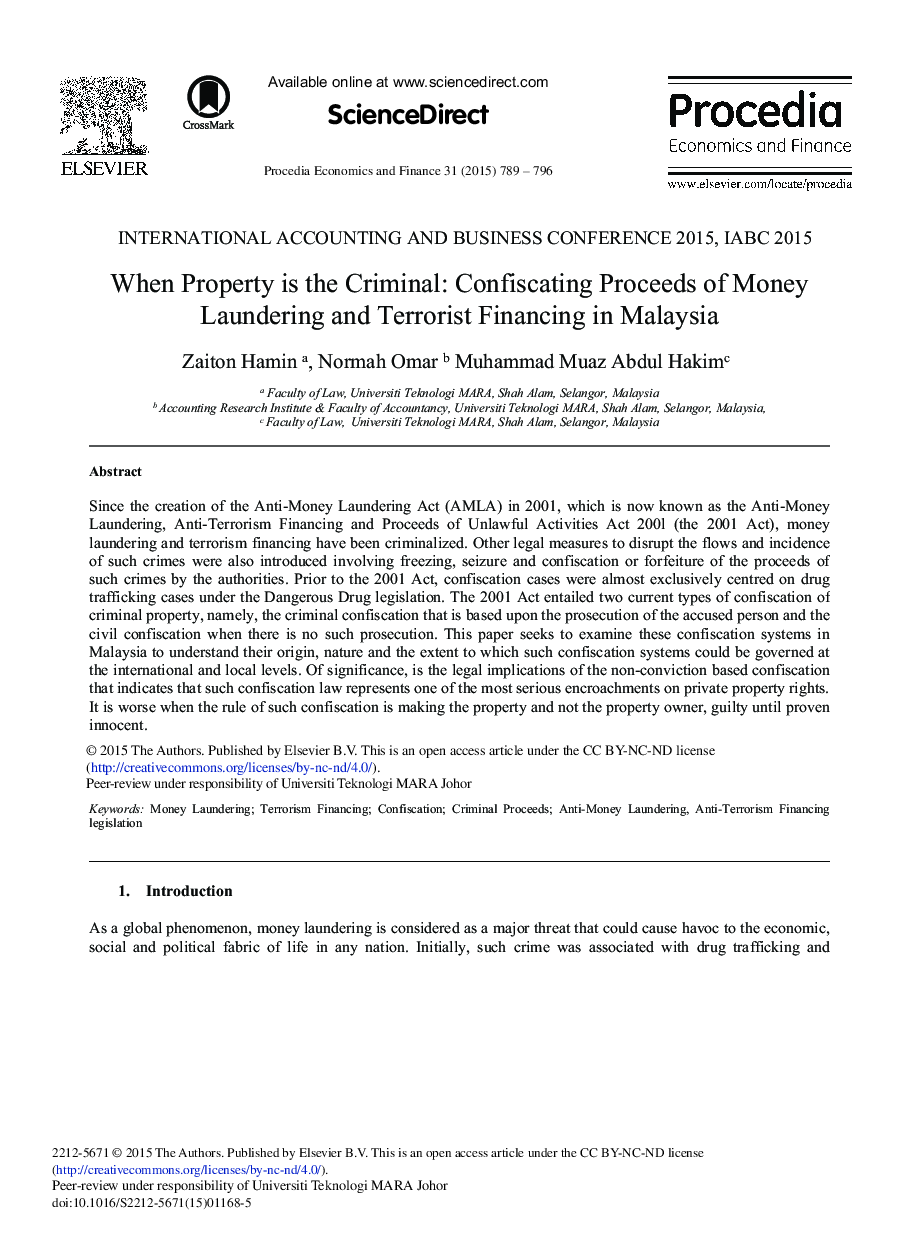| Article ID | Journal | Published Year | Pages | File Type |
|---|---|---|---|---|
| 982703 | Procedia Economics and Finance | 2015 | 8 Pages |
Since the creation of the Anti-Money Laundering Act (AMLA) in 2001, which is now known as the Anti-Money Laundering, Anti-Terrorism Financing and Proceeds of Unlawful Activities Act 200l (the 2001 Act), money laundering and terrorism financing have been criminalized. Other legal measures to disrupt the flows and incidence of such crimes were also introduced involving freezing, seizure and confiscation or forfeiture of the proceeds of such crimes by the authorities. Prior to the 2001 Act, confiscation cases were almost exclusively centred on drug trafficking cases under the Dangerous Drug legislation. The 2001 Act entailed two current types of confiscation of criminal property, namely, the criminal confiscation that is based upon the prosecution of the accused person and the civil confiscation when there is no such prosecution. This paper seeks to examine these confiscation systems in Malaysia to understand their origin, nature and the extent to which such confiscation systems could be governed at the international and local levels. Of significance, is the legal implications of the non-conviction based confiscation that indicates that such confiscation law represents one of the most serious encroachments on private property rights. It is worse when the rule of such confiscation is making the property and not the property owner, guilty until proven innocent.
